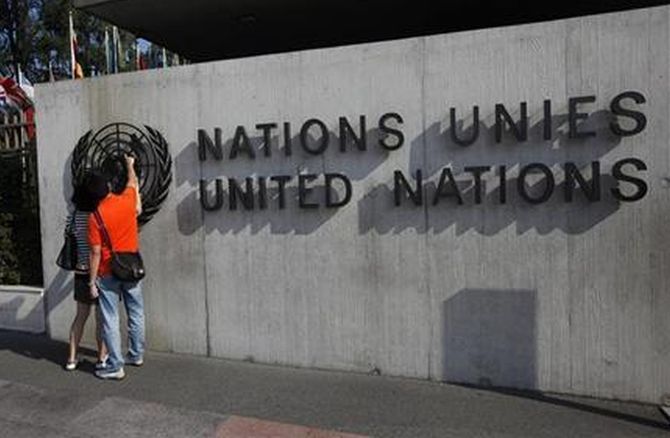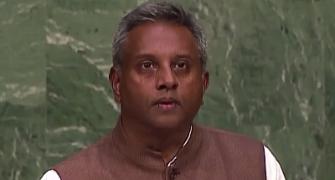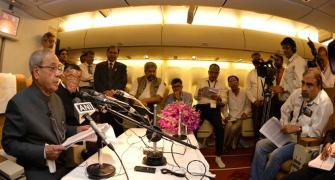India along with the G4 nations said it is “unfortunate” that momentum could not build up over the issue in the current session.

India’s push to achieve urgent reforms of the UN Security Council this year and secure a permanent seat has suffered a setback when the general assembly decided to roll over discussions on reforming the world body’s top organ to its next session.
India along with the G4 nations said it is “unfortunate” that momentum could not build up over the issue in the current session.
Brazil’s envoy to the UN Antonio de Aguiar Patriota, speaking on behalf of the G4 groups of Brazil, Germany, India, and Japan, lamented that the UN had not been able to push forward and achieve success in implementing the long-pending reform of the 15-nation powerful Council.
“There was huge expectation that time had arrived for us to move into concrete negotiations, It is unfortunate that the 70th anniversary of the UN was not able to build up momentum with a view to reaching an agreement on this important item,” Patriota said in the General Assembly on Wednesday.
India has been pushing for completing reforms of the UN Security Council in the 70th session of the General Assembly, which will end in September this year.
Taking consensus action on Wednesday, the General Assembly adopted an oral decision paving the way for Member States to continue discussions on reforming the Security Council during its 71st session, which will commence in September.
In giving effect to that “technical rollover”, the assembly reaffirmed its central role on the issue of Security Council reform, known formally as “the question of equitable representation on and increase in the membership of the Security Council and other matters related to the Security Council”.
Speaking for the G4, the Brazilian envoy described Security Council reform as one of the most pressing issues still pending on the General Assembly’s agenda.
It was crucial that member states engage in real, text-based negotiations if the process was to have any meaning, he said.
While the elements of convergence on two of the five key issues pertaining to the reform process could be considered useful to the extent that they identified some already-known trends on the positions and proposals of Member States, other important patterns on the remaining three clusters were regrettably not reflected as leading towards convergence.
He added that it was obvious that a growing majority of Member States supported the Council’s expansion in both membership categories, but that had not been registered in writing.
Member States had also argued that the under-representation of developing countries should be addressed, yet that suggestion had also not been captured.
“The longer we postpone a decision on the reform of the Security Council, the greater discredit brought upon the United Nations in its core function of promoting peace and security,” he said adding, “We can no longer go around in circles on Security Council reform”.
The Brazilian envoy stressed that people expected from “bold leadership” and a “commitment to change” from the world body in the wake of the unprecedented crises and threats to security being faced across the world.
“Most of have already understood that holding on to status quo cannot be an option,” he said adding that not having text-based negotiations is not a “sustainable state of affairs” and the reform must be completed within a fixed time frame.
The assembly also decided that its upcoming discussions would build on the positions and proposals made by Member States and reflected in the decision and its annex -- circulated on 31 July 2015 -- and use the elements of convergence circulated on 12 July 2016 to help inform its future work.
India had been strongly pushing for completing the long-pending reforms of the Security Council by the end of the 70th anniversary of the UN this September.
India’s former Ambassador to the UN Asoke Mukerji had last year noted that India was among the first to seek to conclude the UNSC reform process by the 70th anniversary of the United Nations.
“It is our hope that with the adoption of this decision, we will now move purposefully towards concluding our negotiations during the 70th session, so that we fulfil the unanimous mandate given by our leaders in the World Summit of 2005 for ‘early reform’ of the Security Council to make it ...’more broadly representative, efficient and transparent and thus to further enhance its effectiveness and the legitimacy and implementation of its decisions’,” he had said.
In May, the G4 nations had decried the “out of date” structure of the UN Security Council, saying the problem of “imbalance of influence” in the Council cannot be corrected if only non-permanent members are added to the powerful UN body as part of its reform and expansion in both categories is essential to achieve equilibrium that reflects current global realities.
India’s Permanent Representative to the UN Ambassador Syed Akbaruddin had said it is evident from the positions submitted in the text circulated by the former UNGA president in July 2015 that an overwhelming majority of member states support expansion in both categories.
In all, 129 member states out of a total 152 or about around 85 per cent support expansion in both categories.
“We do believe that the problem lies in the imbalance of influence within the Security Council between the permanent and non-permanent members. Expanding only in the non-permanent category is not going to solve the problem.
“It will actually widen the difference between permanent and non-permanent members even more, tilting further the scales in favour of a dispensation that was valid in the special situation in 1945 but is no longer now,” he had said.









